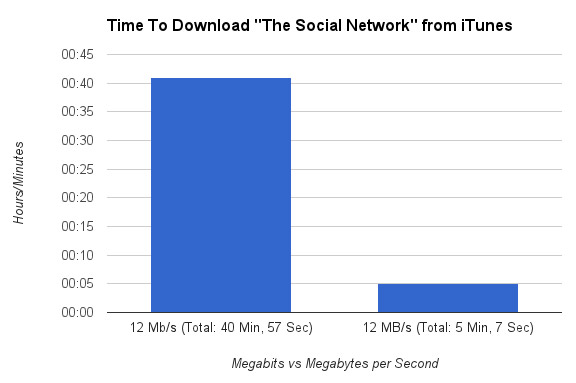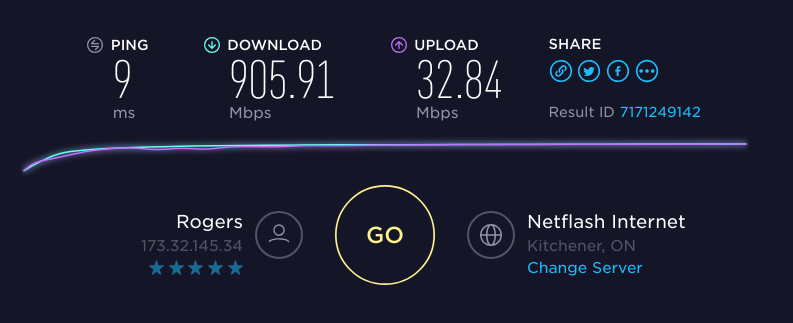Contrasting Internet Suppliers: Who Offers the very best Megabits Per Second?
Contrasting Internet Suppliers: Who Offers the very best Megabits Per Second?
Blog Article
How Megabits Per Second Effect Your Online Tasks
The principle of megabits per second (Mbps) plays a crucial function in forming our on the internet experiences. As electronic tasks multiply, understanding the ramifications of Mbps on pc gaming, streaming, and video clip conferencing ends up being progressively essential. Higher Mbps can boost efficiency and lower disruptions, while inadequate rates might foster irritation and ineffectiveness. Assessing your family's details needs in connection with these rates is essential, specifically as multiple devices contend for data transfer. Yet, the nuances of how Mbps impacts numerous online tasks warrant more expedition, particularly as our dependence on digital connectivity remains to develop.
Comprehending Megabits Per Second
When considering web speed, it's necessary to recognize the principle of megabits per second (Mbps), which acts as a typical dimension for information transfer prices. This statistics measures exactly how much data can be transferred over a web link in one second, offering a clear understanding of efficiency abilities - Megabits Per Second. For context, one megabit amounts to one million little bits, and Mbps is typically made use of to express data transfer for various online activities
A higher Mbps indicates a quicker internet link, enabling individuals to perform jobs such as downloading and install files, browsing websites, and participating in online gaming more effectively. As an example, regular browsing requires around 1-5 Mbps, while streaming high-definition video may require 5-25 Mbps. Recognizing these requirements is important for figuring out the appropriate web rate required for certain activities.
Furthermore, the number of tools attached to a network can impact general performance. Multiple individuals streaming, video gaming, or downloading and install concurrently can stress readily available data transfer, resulting in slower speeds - Megabits Per Second. Reviewing individual online practices and requirements is essential in choosing a net plan that aligns with one's demands, making certain a seamless digital experience
Streaming and Buffering Issues
Streaming high-definition content has come to be a staple of modern-day on the internet entertainment, yet it is commonly come with by irritating buffering problems. These disturbances can significantly take away from the watching experience, resulting in frustration and potential loss of target market interaction. Buffering takes place when the data transmitted from the streaming service is not received promptly enough to maintain a smooth playback, usually as a result of inadequate web rate determined in megabits per second (Mbps)

In addition, real-time streaming can be impacted by network congestion, which occurs when numerous gadgets share the very same data transfer. Subsequently, enhancing link rate and guaranteeing appropriate Mbps is important for a seamless streaming experience. As streaming services remain to progress, recognizing the impact of Mbps on buffering concerns remains essential for customers looking for continuous home entertainment.
Online Gaming Performance
The effect of internet speed on on-line activities expands beyond streaming, considerably influencing online pc gaming efficiency. In competitive pc gaming, low latency and high data transfer are vital for a seamless experience. A fast connection decreases lag, permitting players to respond quickly to in-game occasions, which can be the distinction in between triumph and defeat.
Data transfer, gauged in megabits per second (Mbps), plays a vital role in sustaining multiple devices and pc gaming platforms all at once. Insufficient bandwidth can result in went down links or minimized video game quality, adversely influencing gameplay. For circumstances, on the internet multiplayer video games require substantial information transfer, especially throughout peak gaming hours when countless players are online.
Hectic first-person shooters demand greater speeds to maintain responsiveness, while turn-based technique games may function fairly well on lower rates. As on the internet video gaming proceeds to progress, with boosting visual integrity and more complex multiplayer atmospheres, the need for greater Mbps will just increase.
Video Clip Conferencing High Quality
In today's electronic landscape, video conferencing quality is greatly influenced by net speed, specifically in terms of transmission capacity and latency. Top notch video calls require adequate data transfer to transmit sound and video information perfectly. Usually, a minimum of 1.5 Mbps upload and download rates is advised for standard interpretation video, while high-def video clip conferencing generally requires at the very least 3 Mbps.
Latency, or the hold-up between sending and getting data, additionally plays a crucial role in the customer experience. Low latency makes certain that conversations circulation normally without unpleasant pauses or disruptions. Ideally, latency needs to be listed below 150 nanoseconds for reliable communication. Higher latency can lead to echo, lag, and disjointed communications, which can impede collaboration and involvement throughout meetings.
Additionally, several individuals in a video seminar can stress readily available bandwidth, requiring even greater rates. Network congestion, frequently triggered by simultaneous tasks like streaming or downloading, can even more deteriorate video clip top quality. Hence, for organizations relying upon video clip conferencing for remote collaboration, recognizing the relationship in between megabits per second and general communication top quality Resources is essential for preserving efficiency and enhancing online interactions.
Choosing the Right Web Plan
Selecting a suitable net plan is critical for making sure optimal efficiency in numerous online activities, especially in settings that demand high data transfer, such as video conferencing and online pc gaming. Megabits Per Second. When thinking about a web strategy, it is necessary to review both the speed and data allocation to match your details usage needs
For families with numerous customers taking part in simultaneous tasks, a strategy providing greater megabits per second (Mbps) is recommended. Normally, a minimum of 25 Mbps is ideal for conventional streaming and surfing, while strategies going beyond 100 Mbps are more suitable for even more extensive tasks. Furthermore, take into consideration the nature of your online tasks; video clip conferencing needs a minimum of 1.5 Mbps post rate, while online pc gaming may require a lower latency however regular connection.
Unrestricted data strategies can avoid throttling and interruptions, particularly if hefty use is anticipated. By attentively selecting a net plan tailored to your requirements, you can boost your on the internet experience, making sure resource smooth, nonstop access to your favored activities.
Conclusion
Finally, the importance of megabits per second (Mbps) in shaping online activities can not be overstated. Higher Mbps helps with seamless streaming, minimizes buffering, improves video gaming experiences, and ensures high-grade video clip conferencing. Conversely, insufficient transmission capacity can bring about frustrating interruptions and reduced efficiency throughout various jobs. For that reason, a complete understanding of private or house Mbps demands is vital for picking an ideal net plan that effectively supports diverse online activities and user needs.

Normally, a minimum of 25 Mbps is appropriate for conventional streaming and browsing, while plans Going Here exceeding 100 Mbps are better for more extensive tasks. In addition, think about the nature of your online activities; video clip conferencing needs at the very least 1.5 Mbps publish speed, while on the internet video gaming may need a reduced latency yet consistent link.
Report this page